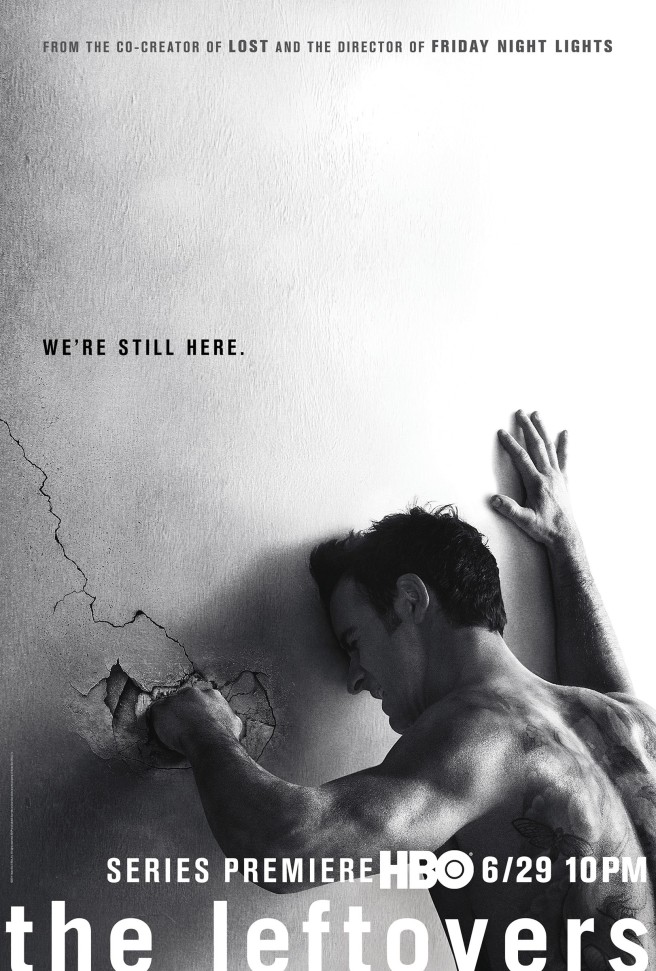
En español a continuación.
The leftovers, Season 1, created by Damon Lindelof, based on a novel by Tom Perrotta (HBO, 2014).
Score: insightful.
On October the 11th, 2011, 2% of the world’s population vanishes. They just poof into thin air. The leftovers shows some insight into the lives of the small community of Mapleton, just outside New York City, three years after the Sudden Departure. Kevin Garvey (Justin Theroux) is the Chief Officer of the local police, keen on maintaining peace and trying to help out his teenage daughter Jill (Margaret Qualley) after his father (Scott Glenn) was commited to a mental institution, his son Tom (Chris Zylka) ran away and joined a cult and his wife and he became estranged. Mapleton, just like the rest of the country, is being slowly taken over by the Guilty Remnant, a cult with a vow of silence and chainsmoking, led by Patti Levin (Ann Dowd) and intent on making everyone remember (and obsess over, if possible) the Sudden Departure. Other important characters are Matt Jamison (Christopher Eccleston), an Episcopalian priest hell-bent on proving that the Sudden Departure was not the Rapture by digging around the morally reproachable things that the Departed did; his sister Nora Durst (Carrie Coon), whose husband and two children were Departed and now works for the government, and Holy Wayne (Paterson Joseph), a cult leader who claims can take grief away by hugging people.
Even though the setting is similar to shows like Flashforward, The leftovers takes on a very different course: the goal is not to find out why all those people disappeared. It is not about solving the mystery, not even about taking a rational approach to it. Something painful happened with no explanation, and the different characters are seen coping with grief, reflecting on their own spirituality, looking up to an absent god for answers or preying on those who can’t find relief. The tone is successfully set within the first two episodes, through extensive use of religious imagery, from the Christian fresco-inspired opening credits to the repeated apparition of a deer, and by quickly establishing what the conflicts are.
The cinematography is more functional than elegant, the score abuses (not always appropriate) preexistent songs, and the dialogue can be silly at times, but the show is, in general, excellently written, especially on episodes that flesh out a particular character, such as “Two boats and a helicopter” and “Guest”. Probably because it deals with sensitive and powerful topics such as faith, grief and loss, from multiple perspectives. It works very well as an allegory for loss and trauma: the Sudden Departure is what you get when you add up sudden absence, an inability to rationalize what happened and a lack of closure. It works for natural deaths of loved ones, massive accidents, terrorist attacks, even broken homes. This allows the show to explore a different aspect of the topic with each character. Events and causality are not really overexplained, so it can be a demanding show; Kevin’s arc in particular requires piecing together and some patience.
All in all, probably not what you’re looking for if you want mystery and adventure, even though the plot trigger promises both. Once that it is out of the way, I recommend this show for its insight and the psychological depth of its characters.
Under the spoiler tag, I would like to analyse the characters in more depth, since there are some very juicy details.
***SPOILERS***
